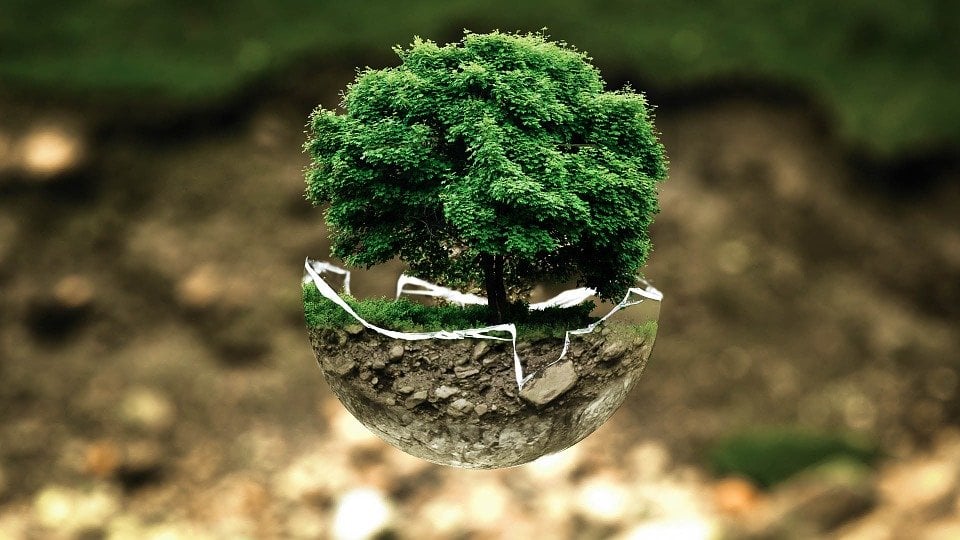
In recent years, there has been a growing awareness about the negative impact of traditional waste disposal methods on our environment. As a result, individuals and organizations have started exploring alternative ways to manage their waste, specifically organic waste. One such pioneer in this field is John Gessin, who has been leading the way in developing and implementing advanced technologies for green waste recovery.
The Need for Innovation in Organic Waste Management
Due to increased population and urbanization, organic waste management has recently become a pressing issue. According to World Bank data, global waste could reach 3.4 billion tons by 2050, with organic waste accounting for a significant portion. Traditional waste management methods harm and deplete natural resources, growing the need for innovative, efficient, and cost-effective solutions.
One of the main challenges in organic waste management is reducing the amount of waste in landfills or incinerators. Landfills produce large amounts of methane gas, a potent greenhouse gas contributing to climate change. Incineration releases harmful pollutants into the air that can harm human health. This highlights the need for alternative methods of organic waste management that not only divert waste from landfills but also minimize its environmental impact.
Technological Advances in Green Waste Recovery
Technology has advanced sustainable waste management practices in recent years. John Gessin has been at the forefront of promoting innovative solutions for green waste recovery. One such advancement is anaerobic digestion, a biological process breaking down organic materials into biogas and nutrient-rich digestate. Biogas is a renewable energy source, while the digestate can be used as a fertilizer.
Another technology that has shown promise in green waste recovery is composting. Microorganisms naturally decompose organic waste, producing a nutrient-rich product that can improve soil health and fertility. Advanced composting techniques, such as in-vessel composting, can efficiently and effectively process large quantities of organic waste, reducing the need for landfills and incinerators.
Benefits of Green Waste Recovery
Organic waste management technology offers numerous environmental benefits. By effectively handling organic waste, we reduce greenhouse gas emissions, conserve natural resources, and significantly mitigate climate change. These innovative solutions go beyond waste management; they contribute to a sustainable future by combating methane gas emissions and preserving non-renewable resources. By diversifying organic waste from landfills and incinerators, we pave the way for a greener and more eco-friendly world.
Moreover, green waste recovery technologies play a role in fostering a circular economy. By transforming green waste into valuable products like renewable energy and nutrient-rich organic fertilizer, these technologies minimize the reliance on environmentally damaging waste management methods and pave the way for a more sustainable, resource-efficient society. Through this innovative approach, we can effectively address the challenges posed by traditional waste disposal practices and move towards a greener and more environmentally conscious future.
Challenges and Solutions for Implementing Green Waste Recovery
While technology has greatly advanced organic waste management, green waste recovery must be fully implemented. One challenge is the investment required, which can be a barrier for smaller communities or developing countries with limited resources. However, governments and organizations can provide financial subsidies to encourage the adoption of green waste recovery technologies.
Another challenge is the lack of infrastructure for collecting and processing organic waste. This can make it difficult for individuals or businesses to dispose of their waste responsibly, leading to increased dumping in landfills or illegal dumping. To address this issue, governments and municipalities can invest in infrastructure for collecting and processing organic waste.
The Role of Individuals and Communities in Green Waste Recovery
Individuals and communities are responsible for advocating for and participating in green waste recovery initiatives. By adopting sustainable waste management practices at the household level, such as segregating organic waste from other types of waste streams, individuals can actively contribute to diverting organic materials away from landfills and incineration facilities. This collective effort reduces organic waste's environmental impact and fosters sustainability within neighborhoods and cities.
Additionally, individuals can engage in various community-led initiatives, like joining composting clubs or contributing to community gardens that use compost created from organic waste. By actively participating in these initiatives, individuals support green waste recovery, help nurture a vibrant sense of community, and strengthen environmental stewardship efforts within the neighborhood.
Future Outlook: The Role of Technology in Organic Waste Management
Technology will play a role in future organic waste management and green waste recovery. With artificial intelligence and automation advancements, anaerobic digestion and composting could become even more efficient and cost-effective. This would make these technologies more accessible to communities and businesses of all sizes, leading to the widespread adoption of sustainable waste management practices.
Moreover, as the world faces increasing environmental challenges, technology can help us find innovative solutions to combat these issues. Developing new technologies for organic waste management will reduce our carbon footprint, preserve natural resources, and create new job opportunities in the growing green economy. With continued investments in research and development, we can expect significant advancements in organic waste management technology in the years to come, paving the way for a greener and more sustainable future.
Final Thoughts
Green waste recovery technologies offer a promising solution to our growing organic waste problem. By turning waste into valuable resources and contributing to a circular economy, these innovative solutions have the potential to significantly impact our environment. While implementing these technologies can be challenging, individuals and communities can actively advocate for and participate in green waste recovery initiatives. With the technological revolution, we can look toward a future where organic waste is effectively managed and our planet is healthier and more sustainable for future generations.